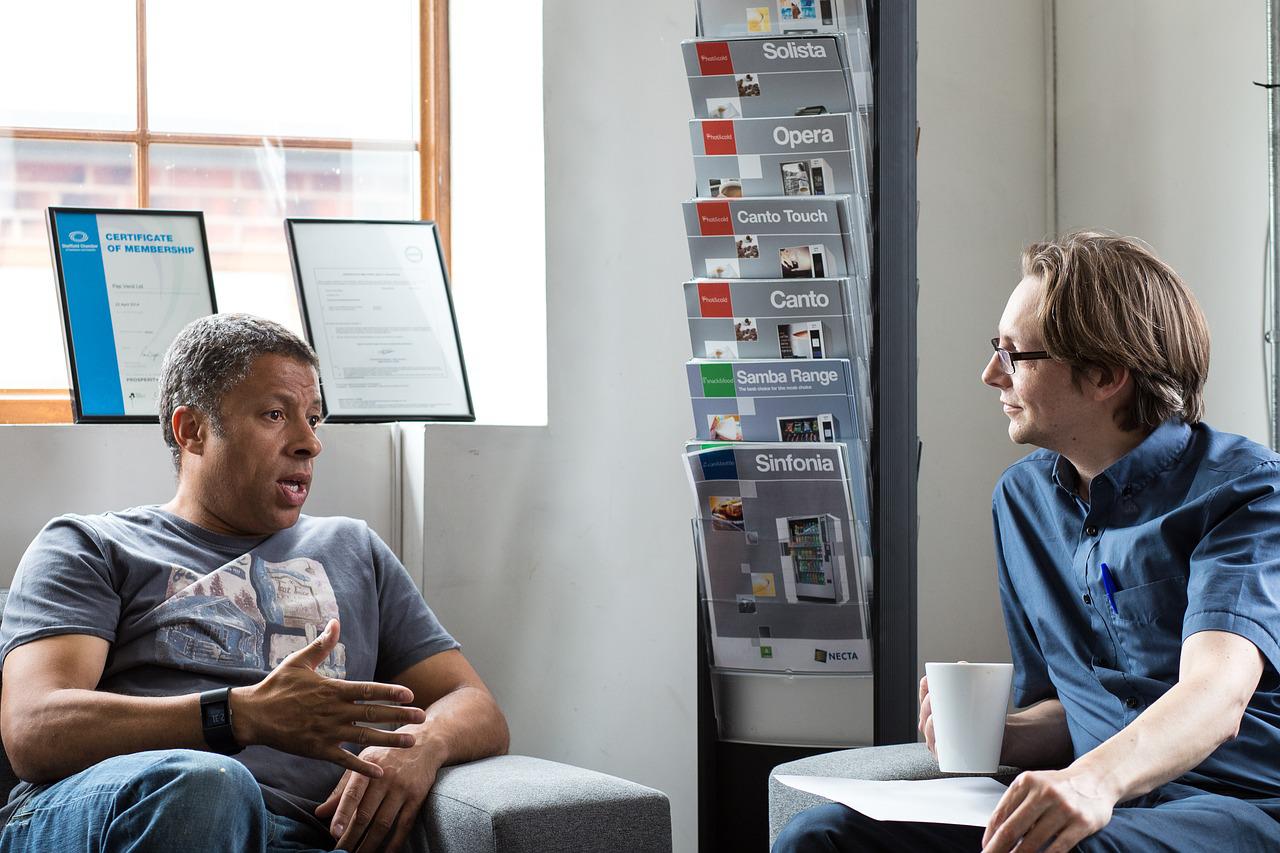Have you ever found yourself looking at individuals you see as more outgoing and social and wishing you were like them? Perhaps you have become aware that you tend to come across as more introverted, and it annoys you?
While some individuals undoubtedly prefer that introverted approach to life, others feel very uncomfortable and wish to come across as more outgoing and social. If that sounds like you, the advice and tips we will provide you over the next few minutes may prove invaluable.
But first, let’s get one thing straight. Not everyone in the world needs to come across as outgoing and social. It’s fantastic that some people have more of a quiet nature. So if you feel pretty content in your life approach, we suggest you do not try to change it. Well, unless you find yourself in some uncomfortable situations where having more of an outgoing personality would prove beneficial.
So these tips will prove helpful more to those individuals actively wishing to learn how to be more outgoing. They will only succeed if you have at least some desire to change how you feel about things.
Understanding Why You are Less Outgoing Or Social
But before we delve into the different tips, let’s look at trying to help you to understand why you may feel less social or less outgoing. Remember, there’s nothing wrong with it. This approach to life does not mean you have something wrong with you.
Perhaps you feel awkward in social settings. Maybe you have social anxiety making it difficult for you to interact?
Your confidence may have hit rock bottom. Have you had a bad experience in the past when in a social setting that affected you?
Learn more about: Tips for Personal Growth
It’s certainly worth taking a moment or two to think about what it is about social situations that you do not like. Understanding the reasons behind it may make it easier to counteract those problems and allow you to make some actual progress.
But let’s get on with the tips.
Tip 1: Start Small
Our first tip is to start small. You have no chance of becoming more social and outgoing in an instant. The mere thought of doing that could terrify you, but that’s also completely normal.
So, it would help if you started small. But what do we even mean by that?
First, think about the different people you will generally encounter on a typical day. Strangers are passing by, people in a store, friends, and people you work with. You have many opportunities every single day to interact with those people and become a master at talking to strangers.
However, we aren’t talking about you attempting to be all social with every single individual you meet. That’s not plausible, and nobody does that.
Instead, let’s go as small as possible.
Step 1: Eye Contact
People who classify themselves as not too social or outgoing will tend to avoid eye contact with people. There’s a thought that if you make eye contact with an individual, they will then wish to engage with you.
While that can happen, it’s not always the case.
Making eye contact is a great first step. As you walk past a stranger, look at them and even smile. You don’t have to say a word as this small gesture will suffice.
If you encounter someone at work, try to stop effectively putting your head down and pretending you have vanished into the wall. Instead, look at them for a few seconds and try to acknowledge that each other exists.
OK, we know this alone may be a big step for some people. It may prove more challenging to do than you think. However, it’s not impossible.
Step 2: Smile
We mentioned this concept of smiling at people in the previous step, and we do see it as the next rung on the ladder of becoming more outgoing. However, a smile still makes for a small development in your quest to interact with more people.
It would be best if you remembered that smiling at an individual will mainly result in that individual smiling back at you. It’s almost as if it’s an immediate reaction that we pretty much all do.
But that entire action of smiling at an individual and them reciprocating does fantastic things for your confidence. It provides a sense of individuals coming across as warm rather than cold. Getting this positive feedback allows you to start feeling more confident about your interactions.

Tip 2: Starting Your Interactions
Once you feel pretty happy with making eye contact and smiling at people, it’s time to then think about starting some form of interaction with individuals. Once again, we do not mean for you to become the life and soul of the party. Instead, keeping it small and easy remains key.
When you feel happy smiling at people, the next logical step is to say hello. You do not need to dive into a conversation. That thought may terrify you at this moment, and that’s fine.
Instead, keep it short and simple. Anyway, walking past a stranger and jumping into a full-blown conversation with them is not the kind of resolution you want or need.
As with the smile point, it’s incredible how many people will respond by saying hello or good morning back to you. This short interaction will boost your confidence even more. You will eventually reach the point where saying hello to any individual will no longer come with the same anxiety.
Building Your Interaction
While saying hello to a stranger in a store or on the street is a limited form of conversation and interaction, you need to know how to build those interactions with people you work with.
It would be best to start with something simple, such as saying hello, but then look at eventually throwing in some small talk. Now, small talk can terrify some individuals, but that’s fine.
Remember that people you work with are not on the same level as a complete stranger. You may even know their name, but that doesn’t always have to mean you have ever had a conversation with them.
Please introduce yourself to them, or use the small talk approach we mentioned earlier. The key is to seek to engage in a conversation, even if it’s just for a minute.
Tip 3: Make Full Use of People You Know
You will generally find it significantly easier to interact with individuals you know. Hence, one tip is to look at building those relationships to improve your confidence.
When you interact with people you feel comfortable with, you worry less about the interaction or something going wrong. You relax, and this relaxation allows you to become more involved.
But here lies a problem. Only staying with your closest friends or family prevents you from branching out.
However, we aren’t saying you should then give up on your friends or relatives. Instead, use them to help you out regarding your desire to become more social.
Ask Them to Introduce You to Others
One approach is to ask people you trust to introduce you to other individuals they know and trust. At times the fear we have regarding this concept of being more social is others not accepting us. We lack faith in individuals, but having people we already trust introduce us means we skip that step.
But you may wonder how all of this works, so let’s give an example.
Imagine a moment where you walk into a room and see one of your good friends talking to another individual. However, you have no idea who this other individual is, so your first thought is just to let them carry on talking.
But what if you did something a bit different? What if you asked your friend to introduce you to the person they are talking to?
Alternatively, just go up and introduce yourself. After that initial moment, you will generally find it easier to say hello to this new person the next time you meet them.
If you repeat that process several times, you suddenly have a larger circle of people you can talk to, even if it is only exchanging short conversations.

Tip 4: Your Comfort Zone
If you want to learn how to be more outgoing, then it does mean you must step out of your comfort zone. However, that mere thought could feel terrifying, but that’s normal.
If we only ever stay within our comfort zone, then we have no opportunity to expand our horizons. So, we need to help you move out of it but still have your comfort zone within easy reach. After all, this is a stressful thing to do.
So how do you do this?
Find Something You Like
Perhaps the easiest way to step out of your comfort zone is to still have one foot in it. You can make this approach in this way.
Think about some hobby you like or just anything you enjoy. Make sure it’s something you feel comfortable doing.
After identifying that hobby, you need to look at ways to indulge in the hobby with other people.
Say you love walking in nature. Here, you would search for a walking group in your local area and look at going on one of their treks.
The key here is that you have something in common with the other people. Everyone on the trek loves being outdoors. That alone breaks the ice, making life significantly easier.
But you may find yourself wondering what happens if it turns out that this group is not suitable for you? Well, that doesn’t then mean the entire attempt was a disaster. Instead, it all depends on how you look at the experience.
Your primary focus is the fact you went and interacted with other individuals. You actually did it, and even though you may not have enjoyed everything about it, you were more social than before and you are a step closer to truly learning how to be more outgoing.
Any event or situation where you spend time talking or interacting with people out of your usual circle is a victory.
Tip 5: Focus on the Other People, and Not Yourself
So this tip may prove difficult for some people, but it’s not impossible. The problem we often have with not coming across as outgoing as others mainly lies within ourselves.
Suppose we find ourselves caught up in what is actually our own self-image. In that case, the concept of staying in the shadows does become far more appealing. Learning how to be more outgoing will allow you to enjoy new life experiences and meet new people.
Also read: How to Make Life More Exciting and Interesting? [Complete 2022 Guide]
The easiest way to overcome the issues with your own self-image is to seek to push your mind to focus on the other person. As this other individual talks to you, please pay close attention to what they say. Actively listen and focus on those words rather than the anxiety you feel. By shifting your attention away from it, you reduce the hold anxiety has over you.
Keep in mind that most people become self-absorbed in their own things. They do not notice you feel anxious or consumed by fear. Often, people feel too busy tackling their own anxiety.
Perhaps you should know of the existence of something called the spotlight effect. The spotlight effect comes from people overestimating just how much people notice about them. Sadly, we just do not come across as that exciting or important to people.
Tip 6: Mindfulness Works Well For Anxiety
Our final tip aims to tackle the main reason people struggle with social situations: anxiety. If you suffer from anxiety, you know how it can cripple you instantly. However, you have ways to tackle it, and they can often prove effective.
Of course, you may have previously used mindfulness in other areas of your life. You might find it difficult to imagine how to use it in this instance. However, it’s easier than you think.
You must remember the point of mindfulness. The aim is to focus on the present, not the past or what may come in the future. Our anxiety tends to come from worrying about something that has gone on before or what is to come. So, turning our attention to that precise moment, and that moment alone, can help us be more talkative and outgoing.
Mindfulness encourages you to focus on the events at hand. It helps you focus on what others are saying and how you reply rather than stressing about things you cannot change.
So the next time you feel like attempting to learn how to be more outgoing, focus on the individual or even individuals and your interaction with them at that moment. As your mind drifts to your usual stressors and worries, please bring it back to what is going on right there and then.
By focusing your attention on even small details in the present, your mind will have no opportunity to start bringing doubts and negative thoughts into your awareness.
Finally, Do it More Than Once
Learning how to be more outgoing and social is not something that will happen overnight, and nor is it something you can achieve on the first attempt. Sadly, this requires patience and a willingness to put yourself in different situations on many occasions.
Also, we won’t lie. It’s tough at first when you attempt to break out of your shell and become more social. But this is one of those times when doing it repeatedly leads to you getting better at it.
Eventually, you will find that talking to individuals is no longer as stressful or complicated as it used to be. Sure, you may still see yourself as more introverted. Still, the days of worrying about talking to people may only exist in your past.
Our Last Thoughts
You do not need to become the life and soul of the party. Being more hesitant in talking to people and interacting with others is entirely natural, and there’s nothing wrong with it. However, you may encounter times when this introverted way of doing things will hold you back.
At that point, it becomes a problem.
The tips listed above can help you break through those barriers and learn how to be more outgoing. Remember that it stems from thoughts you have in your mind, but you can change thoughts and overcome them. Take your time over things, and use each tip that we mentioned. We promise you will notice a difference.
You can do it. You’ve got this one. Now go out and try out the different tips we included above and see how your interactions change and improve.
_ _ _ _ _
For more tips, hacks and tools feel free to explore our Blog. Whether you want to start living with purpose, overcome challenges, learn the morning routines of successful people, or how to be more productive – Living Life Our Way gives you a growing collection of helpful articles!

